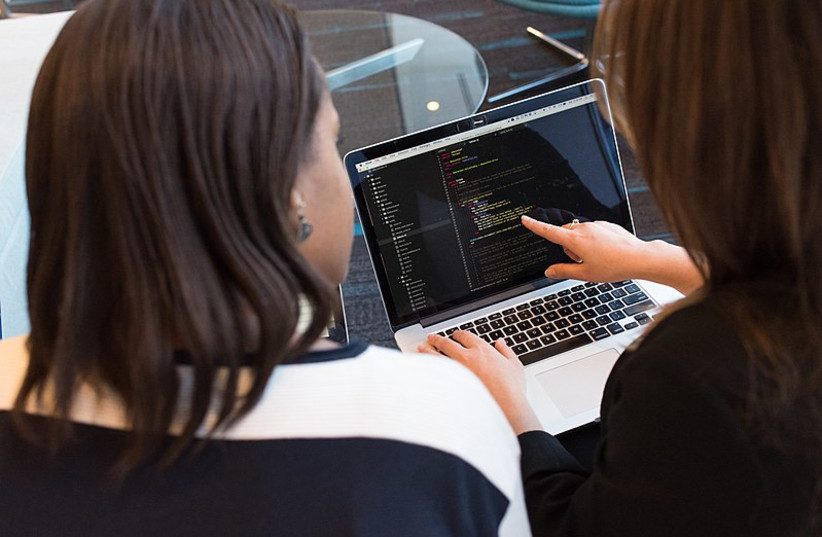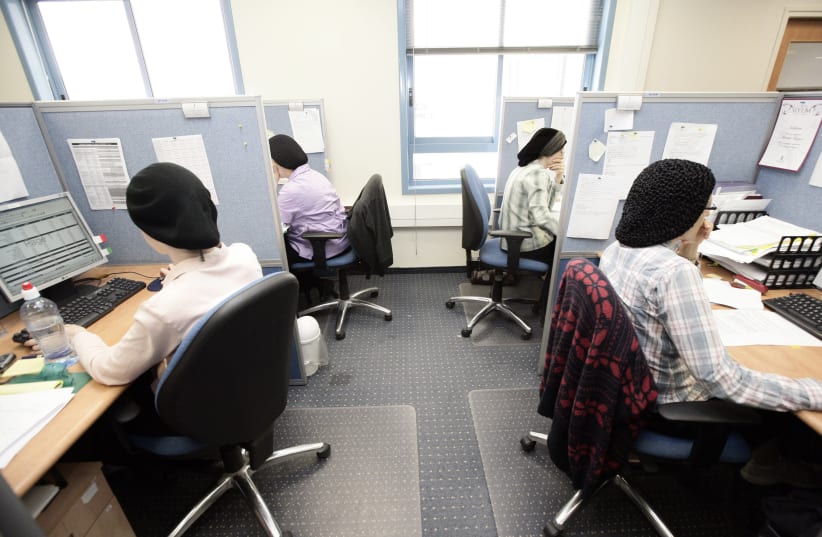Women remain underrepresented in the Israeli hi-tech sector, making up about 34% of the industry’s workforce, according to an annual report released Sunday.
Power in Diversity conducted the report on Israeli ecosystem start-up diversity for the second consecutive year. The report, an initiative set up by Alan Feld, a Canadian-Israeli founder and managing partner of Vintage Investment Partners, found that despite a slight annual increase of 0.4% in the representation of women in 2022, male presence still dominates the tech field.
Women hold 24% of jobs in management roles, representing an increase of 6% from 2021, according to the report, which is based on an analysis of data collected from 650 active Israeli venture-backed companies with at least 50 employees in the country.


"Especially these days, the discourse on inclusion, equality and acceptance should serve as a milestone in the conduct of all of us, especially companies in the high-tech industry, that is a source of innovation and progress."
Shahar Silis
The study also analyzed the status of Arabs and ultra-Orthodox in the start-up ecosystem
The number of start-up workers from the Arab and ultra-Orthodox sectors are significantly lower than even the number of woman. In spite of the fact that Arabs make up 20% of Israel's population, they represent only 0.2% of the start-up industry.
In the traditional hi-tech industry, they hold a share of approximately 2%-3%, while 16% of Israeli Arabs hold degrees in STEM fields, the report said.
It is estimated that only 0.4% of employees in start-ups are ultra-Orthodox, the majority of which are women. Compared to the 13.5% percentage of ultra-Orthodox in Israeli society, their representation in traditional hi-tech companies is 3%.
Shahar Silis, the CEO of Power in Diversity said: "Especially these days, the discourse on inclusion, equality and acceptance should serve as a milestone in the conduct of all of us, especially companies in the hi-tech industry, that is a source of innovation and progress. In the joint process of the initiative with the companies, we have repeatedly proven that a diversified company has a direct impact on profitability, growth and success.
"The companies that emphasize a healthy organizational culture are more stable companies that can deal with uncertainty more effectively. In the current climate, this is a significant advantage. Those who formulate a growth strategy based on DEI tools and exposure to different populations will reap the rewards when the market recovers, and reach the next peak stronger."
Today, practically every major start-up or corporation in Israel has a woman on its executive team
Despite the report's findings saying women are underrepresented, women have seen an astronomical rise in the past decade in tech. Today, practically every major start-up or corporation in Israel has a woman on its executive team, and in many cases, leading the organization as a whole.
Several women are dedicated to improving working conditions for women and empowering them to rise to peaks previously not reached.
Rachel Wagner Rosenzweig is the founder and CEO of FemForward, a Jerusalem-based initiative that offers programs for women in hi-tech looking to progress into first-level management roles with higher salaries.
The initiative was co-founded in 2020 by Jerusalem Deputy Mayor Fleur Hassan-Nahoum and Meirav Atun Amiry, CEO of InTouch, as a community within Made in JLM, a nonprofit that helps to oversee and grow Jerusalem’s hi-tech ecosystem.
Troy Fritzhand contributed to this report

